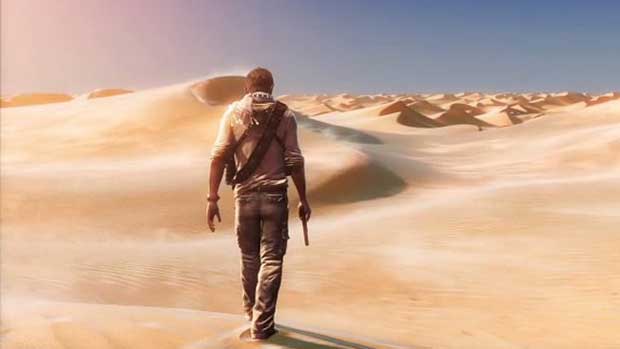The debate of whether single player experiences are slowly dying off, and of whether they’re going to remain a commercially viable option for game makers, is one that has been part of this industry and right at the forefront for a few years now. According to Amy Hennig, who once used to spearhead the Uncharted franchise, and quite recently left EA after Visceral’s shuttering, single player games in the traditional sense of the word are not the kind of project developers and publishers can properly support anymore.
While speaking at Gamelab (full transcription provided by Venturebeat), Hennig said single player experiences continue to grow at an exponential rate, providing increasingly more content, but continue to be sold at the same price. This means that publishers don’t consider them to be a commercially viable option anymore, which is why they tend to instead greenlight games that can provide some sort of constant engagement, either as a multiplayer-focused title with constant post-launch support, or as some other mode of games-as-a-service.
To make her point clearer, she talked about how most single player games have so much content these days that in spite of being narrative focused, most people never even get to see their ends, which in a way defeats the purpose. Hennig went on to say that she hopes that through digital distribution and perhaps through some sort of subscription models, games can see variation in their selling points, and as such, be able to tell shorter, more concise stories instead of having to be crammed full of content.
“It’s not that we’re looking at the death of single-player games, or that players don’t want that,” Hennig said. “Some publishers are going to fall on one end of that spectrum or another based on their business plan. Fair enough. It’s just that the traditional ways we’ve done that are getting harder and harder to support. That’s why I’ve talked in the past about feeling like we’re in an inflection point in the industry. We’ve talked about this for a long time. How do we keep on making games like this when they’re getting prohibitively expensive? We don’t want to break the single-player experience, but there’s pressure to provide more and more at the same price point games have always been.”
“That isn’t sustainable, I believe,” she continued. “I think it breaks the purpose of a single-player game. I was saying to some people here, I play games because I want to finish them. I want to see the story. I like the arc of a story. I don’t see the ends of most games. How crazy is it that we say it’s about narrative, but we make games where a fraction of the audience sees the end of the game? That’s heartbreaking.”
“I hope that we see more shakeup in the industry,” Hennig went on to say. “We’ll open up the portfolios — maybe with a subscription model — so we can see that there can be story games that are four hours long at an appropriate price point. We have digital distribution. That should be possible. We shouldn’t be stuck at this brick and mortar price point and trying to make more and more content, breaking the spirit of these games.”
What she’s saying does make some sense. This is, of course, a huge factor in why we see so many games going down the open world route these days, to be able to provide gamers with as much content as possible in order to keep them engaged. Last year’s poor commercial performances of single-player focused games like Prey, Wolfenstein 2, and The Evil Within 2 only serves to strengthen Hennig’s arguments further. Then again, there are developers like Sony and Nintendo, who continue to keep knocking the ball out of the park, both from a commercial and critical standpoint, with proper, traditional, single player experiences. Perhaps there’s a right balance that has to be struck that continues to eludes some developers, but not others. It’s an interesting conversation, to say the least. What are your thoughts on this? Tell us in your comments below.














